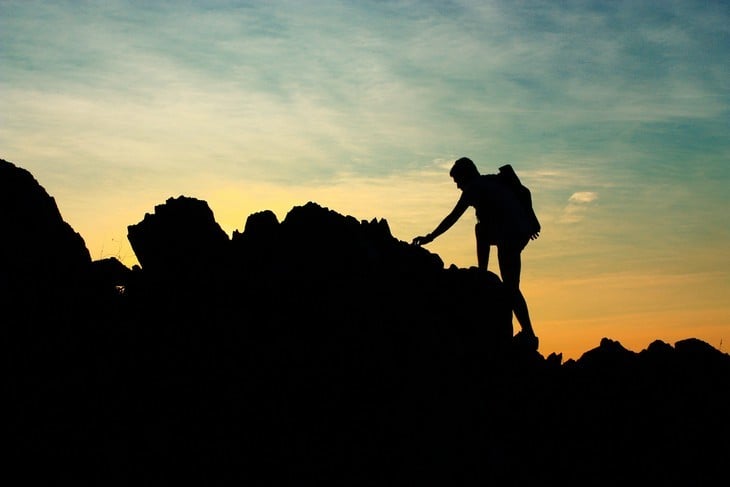How To Avoid Altitude Sickness- Symptoms And Tips To Overcome Altitude Sickness

If you are new to climbing or mountaineering and don’t know how to avoid altitude sickness? Here we have something for you to help you a bit!
Altitude sickness occurs when you feel several related symptoms; it doesn’t matter whether it is mild or severe.
Altitude sickness is common when people head out to travel high peak mountains or rocks. The higher you reach the mountain, the lower the oxygen or air pressure you will experience. Our bodies need time to adapt and adjust according to the environment.
Here we have listed the symptoms and tips to avoid high altitude sickness that you must follow for your next climbing trip.
What is Altitude Sickness?
The phrase altitude sickness comes when you head out for rock climbing or mountaineering.
The root cause is the same that is a lack of oxygen supply at higher Altitude or elevations.
There can be various symptoms depending on your health conditions. Here we have listed the major signs that can cause you altitude sickness.
Scroll down to know more about this sickness!
Altitude Sickness Symptoms
Symptoms vary from mild to severe ones that can help you combat this sickness while climbing or reaching the highest peak.
Make sure to know about the below-mentioned symptoms before heading out for high altitude locations. This will help you find the right treatment for altitude sickness before it becomes uncontrollable.
Mild symptoms are as follows-
- shortness of breath
- nausea
- loss of appetite
- headache
- not feeling well overall
- throwing up
- dizziness
- feeling tired
- faster heart rate
- trouble sleeping
If you catch any of the above mentioned mild symptoms of altitude sickness, you must stop climbing and return to a lower altitude level. These symptoms must be managed at an early stage; otherwise, it can make your situation worse than ever before.
Severe symptoms are as follows-
- trouble in walking
- confusion while climbing
- more intense stage of the mild symptoms
- color changing of your skin to blue, grey, paler than normal
- excessive coughing
- the problem in breathing even when you’re resting
- tightness in the chest
- heaviness in the chest
- seeing double
If you are experiencing any of the severe altitude sickness symptoms, then you must avoid high altitudes. Shift your focus to lower altitudes or seek medical attention. If you ignore severe symptoms, it can cause fluid in the brain and lungs, turning into a deadly threat.
Tips to avoid high altitude sickness
Altitude sickness is common during mountain or rock climbing. Here we have listed some of the tips that you must follow to avoid altitude sickness.
Climb slowly
Be slow in your progress towards rock climbing or mountaineering. Your body requires some time to adopt that habit of climbing higher altitudes.
Try to climb a low level of altitudes at first to get used to it. Take baby steps to reach a high peak of mountains to avoid any of the above-mentioned symptoms.
Make goals and plan your trip with specified rest spots so that you can rest well before reaching your final destination.
Make sure to plan a day as per your capability that it 3000 feet per day as you travel higher.
Eat carbs
You might be wondering why you should eat more carbs when we haven’t told to eat extra carbohydrates. But let us tell you the fact that at higher altitudes, you require more amount of calories.
So pack high carb and healthy snacks, including lots of whole grains. And get ready to roll the rock!
Bring Snacks
Hunger pangs during climbing or traveling are familiar. Make sure to pack some delicious and healthy snacks that you can eat while traveling.
You can have cocoa products like chocolates or caffeinated muffins or bars for instant energy.
Avoid Alcohol
If you have a habit of consuming cigarettes, Alcohol, sleeping pills, you must stop it while climbing or traveling for high peak or altitudes.
Consumption can make your symptoms worse. Make sure to wait for at least 48 hours after consuming Alcohol. Let your body rest and adopt the change.
Drink water
Water is an essential element that will help you remain energetic during your entire journey. Stay hydrated throughout the day, because hydration is essential to prevent altitude sickness. Climb and consume water regularly to avoid any of the severe symptoms.
Take it easy
Don’t excite the situation; climb at a comfortable and constant pace that is suitable more for you. Make sure to avoid a fast pace that’s too strenuous.
Sleep lower
It’s best to cover a higher Altitude during the daytime rather than the night. The altitude sickness often gets worse at night when you feel sleepy.
If you plan to travel at least 1000 feet per day, you must climb during the daytime and return to a lower altitude to sleep.
Seek Medication help
Medication can help you provide a fight against severe high altitude sickness.
Most experts suggest that taking acetazolamide during your trip or two days before a trip can help prevent altitude sickness.
If medications don’t work well for you, opt for the lower Altitude, which is the only effective treatment for this sickness.
Final words
After reading this article, you might get your answer on how to avoid altitude sickness. Altitude sickness can be measure according to your mild or severe symptoms.
Start gradually and maintain a constant pace while climbing to train your body for higher altitudes. Seek medical help if you are having trouble breathing, heart problems, or diabetes, before traveling to high Altitude.
Be safe and follow the above-mentioned tips to avoid or prevent altitude sickness
Comment down below if you found this article helpful






